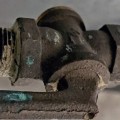When we think of plumbing, our minds often go directly to water systems, but many plumbers are also highly skilled in working with gas lines. Gas plumbing involves the installation, repair, and maintenance of gas lines that carry fuel, typically natural gas or propane, to various appliances and systems in homes and businesses. These gases are used for cooking, heating, water heating, and other applications that require reliable energy sources. Understanding the types of gas that plumbers work with and the purposes they serve is essential for homeowners, especially when planning projects like Auckland kitchen renovations, where gas appliances might be part of the design.
Natural Gas: The Primary Choice
Natural gas is the most common type of gas that plumbers work with. It is a versatile and efficient energy source, composed mostly of methane (CH4). Natural gas is delivered to homes and businesses via a network of pipelines, making it a convenient fuel for heating systems, stoves, ovens, water heaters, and dryers. Plumbers install the gas lines that transport natural gas from the main supply into a building and ensure that the connections to appliances are safe and secure.
One of the main reasons natural gas is so widely used is its cost-effectiveness. It burns cleaner than other fossil fuels like oil or coal, which makes it more environmentally friendly, and it is often more affordable for homeowners. Plumbers must be knowledgeable about the intricacies of natural gas systems, including pressure regulation and leak detection, as even small leaks can lead to dangerous situations like explosions or carbon monoxide poisoning.
Natural gas is typically odorless, but an additive called mercaptan is used to give it a distinctive sulfur-like smell, making it easier to detect leaks. Plumbers must be trained to handle and install natural gas systems carefully to prevent accidents. If homeowners smell gas, it is important to contact a plumber or gas utility immediately to assess the situation.
Propane: A Common Alternative
Propane is another gas commonly used by plumbers, particularly in areas where natural gas pipelines are not available. Propane is stored in liquid form in tanks and converted into a gas when used in appliances. It is often chosen for rural areas, off-grid homes, and for specific appliances like outdoor grills, fireplaces, or backup generators.
Propane burns hotter than natural gas, making it ideal for high-performance applications. It is also more energy-dense, meaning that a smaller quantity of propane is required to achieve the same heating effect as natural gas. However, because it is stored in tanks rather than delivered via a pipeline, it requires regular refills and monitoring to ensure a continuous supply.
Plumbers who work with propane must be familiar with tank installation, pressure regulation, and safety protocols to prevent leaks or accidents. Propane tanks can be installed above ground or buried underground, and plumbers are responsible for ensuring that all connections are secure and comply with local safety regulations. They also perform maintenance on propane systems to ensure efficient operation and longevity.
Butane: Specialized Use
Butane is a type of gas that is similar to propane but is less commonly used in residential settings. It is typically used in portable heaters, camp stoves, and lighters. While butane is more energy-dense than propane, it is less effective in cold weather, as it doesn't vaporize well at low temperatures. For this reason, it is generally not used for heating or cooking in colder climates.
Plumbers may encounter butane in specific scenarios, such as outdoor or temporary installations, but it is not as widely used as natural gas or propane for permanent fixtures in homes. However, understanding how to handle and connect butane systems is still an essential skill for plumbers who work in diverse environments, particularly in areas that rely on portable fuel sources.
Biogas: An Emerging Alternative
As the world shifts towards renewable energy sources, biogas has become an emerging alternative in certain areas. Biogas is produced from the decomposition of organic matter, such as agricultural waste, sewage, and food scraps. It is a renewable energy source and can be used in much the same way as natural gas for heating and cooking.
Plumbers who work with biogas systems must understand how to handle the gas safely, as its composition can vary based on the source material. Biogas typically contains methane, carbon dioxide, and small amounts of other gases, and it must be purified before use to ensure that it burns cleanly and safely. While biogas systems are not yet widespread in residential settings, they are gaining popularity in eco-friendly communities and off-grid living situations.
Gas Safety and Installation
Regardless of the type of gas being used, plumbers are responsible for ensuring the safe installation and operation of gas lines and appliances. This involves testing for leaks, installing shut-off valves, and ensuring proper ventilation for gas appliances. Gas systems require regular maintenance to prevent leaks, corrosion, and other issues that could compromise safety.
For homeowners considering gas installations as part of kitchen renovations, it is important to consult with a licensed plumber who specializes in gas systems. Gas appliances, such as stoves or water heaters, offer efficiency and performance benefits, but they must be installed with care and compliance with local codes and safety standards.
Conclusion
Plumbers work with several types of gas, with natural gas and propane being the most common. Each type of gas has its specific applications, advantages, and safety considerations. Whether it's natural gas for home heating or propane for off-grid homes, gas plumbing is an integral part of modern living. Proper installation, maintenance, and safety checks by skilled plumbers ensure that gas systems operate efficiently and safely, providing reliable energy for heating, cooking, and other essential household functions.




